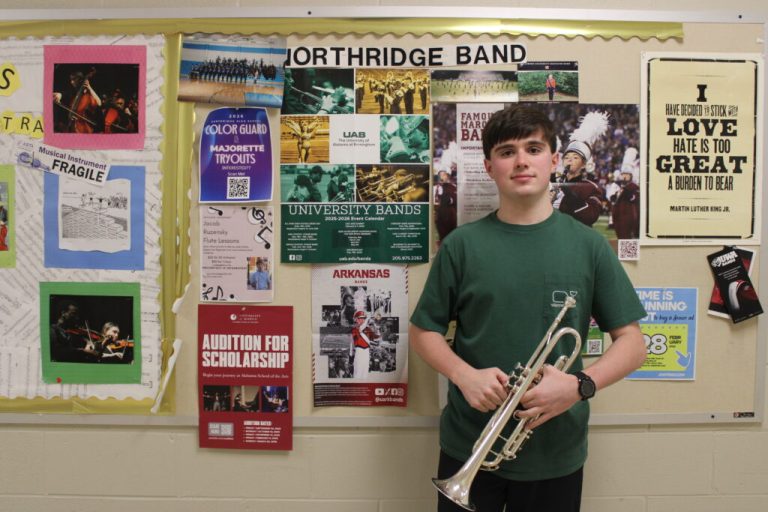Artifacts from Tuscaloosa barbershop to be used in future Civil Rights museum—find out more
Reading time: 5 minutes

Rev. Thomas Linton was a prominent Civil Rights leader in Tuscaloosa for years and collected fascinating pieces of history along the way—all housed in his Tuscaloosa barbershop. Now, following his death in 2020, archivists along with the Tuscaloosa Civil Rights History and Reconciliation Foundation are pulling pieces of his collection for a future museum. Keep reading to learn more.
A shop full of history

Tim Lewis, Co-Chair of the Tuscaloosa Civil Rights History and Reconciliation Foundation, knew Rev. Linton personally, and fondly remembers him as a Civil Rights icon and an avid collector.
“He was a great collector of what seemed to be all things, not just Civil Rights stuff. He collected everything from shaving mugs to razors. Going back in that barbershop is like stepping back in time.”
Tim Lewis, Co-Chair, Tuscaloosa Civil Rights History and Reconciliation Foundation
If the walls of Linton’s Barbershop could talk, they’d speak volumes. The shop is full of a seemingly endless amount of artifacts from many different time periods. These physical moments in time will provide visitors with a glimpse at the past in an upcoming museum.
Undertaking the effort of tagging, labeling and archiving each artifact from the shop is the Tuscaloosa Civil Rights History and Reconciliation Foundation, with support from the City of Tuscaloosa, archivists and volunteers.
Rev. Linton was very instrumental in the Civil Rights movement in Tuscaloosa for years. He worked behind the scenes and had direct contact with Robert F. Kennedy, the U.S Attorney General from 1961-1964.
He had many stories from the Civil Rights movement and beyond, and to several residents of Tuscaloosa, he was a dear friend.
“I had been into his barbershop several times. A part of our Foundation’s work was capturing the stories of Civil Rights foot soldiers before they passed away. He was one of the people that we could actually sit down with and interview to talk about his experiences. We had lots of good conversations.”
Tim Lewis, Co Chair, Tuscaloosa Civil Rights History and Reconciliation Foundation
Remembering the past

Out of everything Lewis had seen so far, the one thing that really caught his attention was a framed poll tax from 1958. Poll taxes were a discriminatory form of voter suppression, used as a legal loophole to keep Black people from voting in southern states.
“He had newspaper articles, pictures and a whole host of things that he collected from the Civil Rights movement. He had posters from speakers coming to Tuscaloosa to speak about Bloody Tuesday, which was when a group of peaceful marchers were attacked coming out of First African Baptist Church, on their way to protest a segregated courthouse. He has a lot of information on that.”
Tim Lewis, Co Chair, Tuscaloosa Civil Rights History and Reconciliation Foundation
Linton’s shop served as a refuge for those marchers on Bloody Tuesday. When they came out of the church, the marchers were met with Klansman and police officers that beat them, clubbed them and teargassed them.
Rev. Linton’s barbershop was about two blocks from the church, so many ran there that day to seek shelter.
The Foundation itself has three people on its board that were foot soldiers in the Civil Rights movement. Occasionally, they lead tours and speak to groups about their firsthand experiences, both on Bloody Tuesday and other situations that occurred in the city at that time.
Looking to the future
The Foundation is looking to convert both the barbershop and the former Tuscaloosa County Jail building into museums. For now, there isn’t a set timeline for when the museum will come to fruition. They’re focusing on collecting artifacts, conceptualizing a design and planning out how to renovate the facilities.
According to Lewis, plenty of people have come forward with documents, artifacts and information of their own to be donated to the museum. Once the physical building comes to life, the museum will be welcoming more artifacts and materials from the public.
“We want people to know about what we’re doing here in Tuscaloosa. We want it to be a destination for people who are on Civil Rights tours. People go to Selma, Montgomery, Birmingham…but there’s a story to be told right here in Tuscaloosa, with Bloody Tuesday, Linton’s Barbershop and a whole host of other things. Our Civil Rights Walking Trail currently has 18 sights on it, soon to expand to about 40. There’s a lot to be seen, learned and experienced here.”
Tim Lewis, Co Chair, Tuscaloosa Civil Rights History and Reconciliation Foundation
For the latest updates and more information on future events, visit the Tuscaloosa Civil Rights History and Reconciliation Foundation website and follow them on Facebook.
To keep up with The Bama Buzz, sign up for our free newsletter delivered straight to your inbox.


